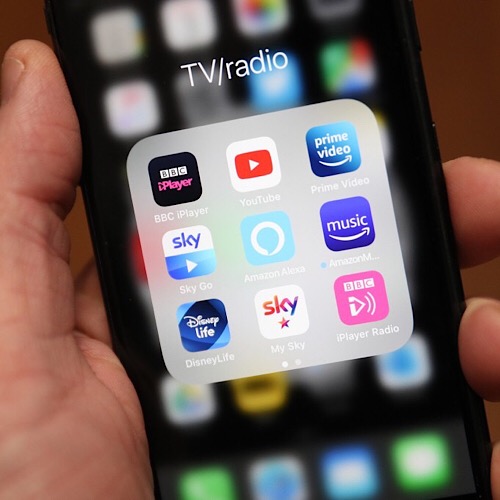If you’ve ever thought someone was secretly eavesdropping on you, you’re right.
Smartphones and other devices can hear and record what you say, as proven by a now-viral TikTok that showed thousands of audio files recorded on a woman’s Echo and Dot speakers and saved in the innermost folders of her Amazon account.
“I’m not totally comfortable with everything they have,” said the TikTok user, who accessed the files after requesting them from Amazon.
Smart speakers, like Google Home devices or Amazon Echos, can accidentally activate19 times a day and record 43 seconds of audio with each activation, according to a new study released by Northeastern University.
This is because the devices attempt to detect “wake” words — like “Hey Siri” or “Alexa” — even when seemingly turned off or asleep. Those vocal cues are a component of what makes the technology handy-to-use, but like any technology, it isn’t perfect.
“These technologies are in various stages of development,” cautioned artificial intelligence expert Liz O’Sullivan, the CEO of Parity, an AI compliance and governance platform.
She doesn’t personally use smart at-home devices, but those who do can take simple steps to protect their privacy. Here’s what to do on various gadgets.
Smartphones
Check what apps have access to your iPhone’s microphone by going to “Settings,” then “Privacy,” then “Microphone.” You can also opt to to turn off Siri in “Settings”: Go to “Siri & Search” (or “Siri” in the “General” tab on iPhones running iOS 10 and older), deselect “Listen for ‘Hey Siri,’” deselect “Press Home for Siri” and “Allow Siri When Locked.” Instead, choose “Turn Off Siri.”

For Android users, you can stop the Google voice assistant by going into “Settings,” tapping “Google” and going into the “Search” tab under the “Services” section. To listen to your Google recordings, log in to the “My Activity” page, filter by “Date & Product,” choose “Voice & Audio” and view the recordings.

Amazon Echo
On every Echo device, there’s an option to mute the microphone that picks up sound.
The button features a microphone or a circle with a line through it and is located on the top of the speaker. To turn it off, push the button; it will turn red and stops the device from listening to vocal cues and accidentally waking, barring it from recording the user until turned back on.
To receive data Amazon collects from you in your home, you can request data from their site and have it emailed to you. You can delete voice recordings saved on devices by logging into your account, choosing “Manage Your Content and Devices” under “My Account” and choosing the individual device.

Google Assistant
To view and delete voice recordings, visit the Google Home app, tap the account icon in the top right corner, choose “My Activity” and select which recordings you want to delete.
Google also has an option to delete recordings between certain dates by clicking the three dots on the right-hand side and using the drop down menu that appears. There is also an “auto-delete” feature in “My Activity” that users can activate.
If you don’t want recordings stored at all, Google devices have an “Assistant Guest Mode” feature, which doesn’t save any audio.

Not everyone in the field sees these privacy concerns as a major issue. Professor Nasir Memon, the chair of New York University’s Tandon School of Engineering, noted that these companies don’t store information maliciously — they do it for quality control and to best optimize the technology for users.
“I understand the concern,” he said. “But what can you do, right? You’re looking for a system to obey your voice commands, and it has to be triggered in some way.”
source: Nypost










